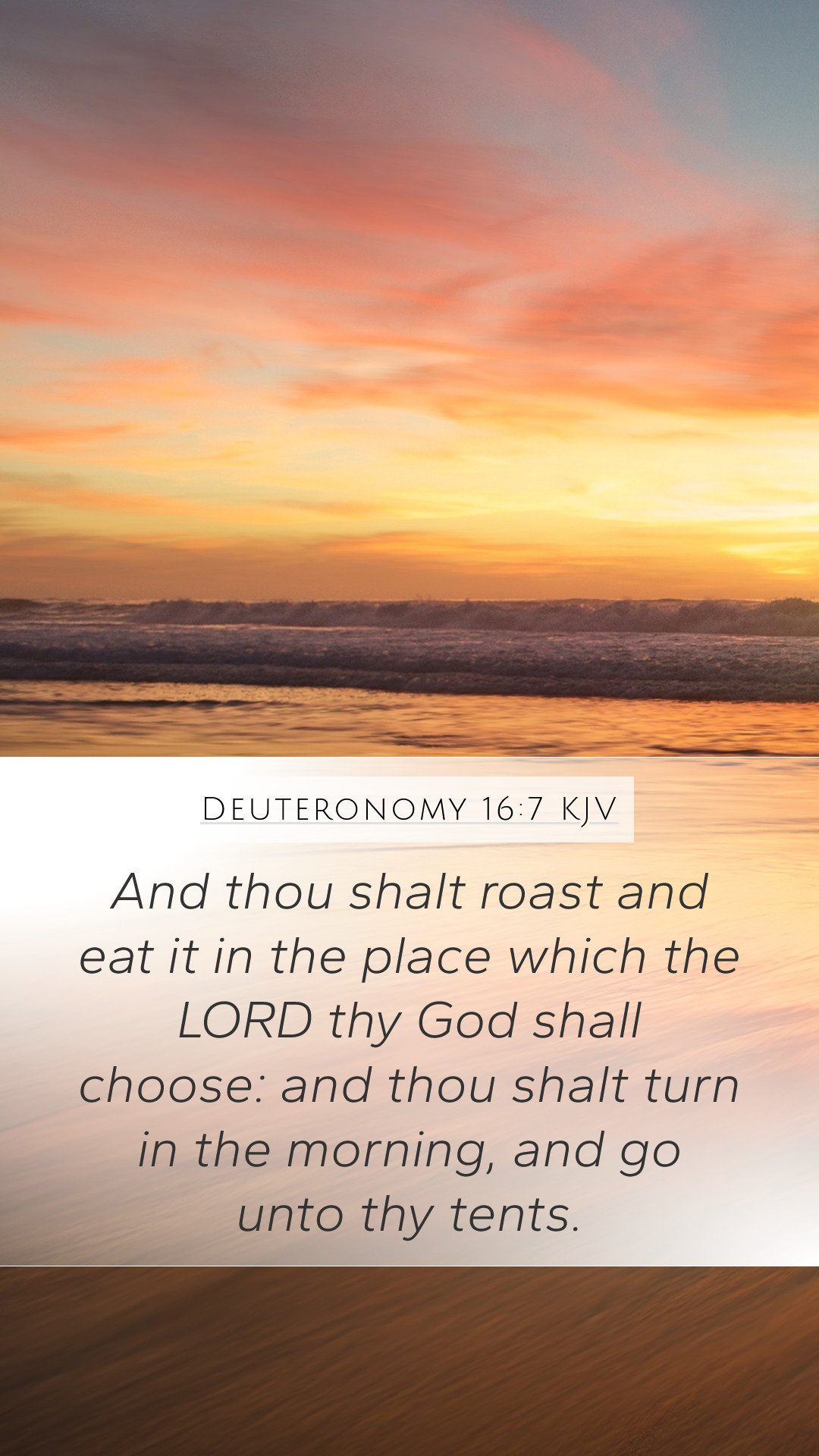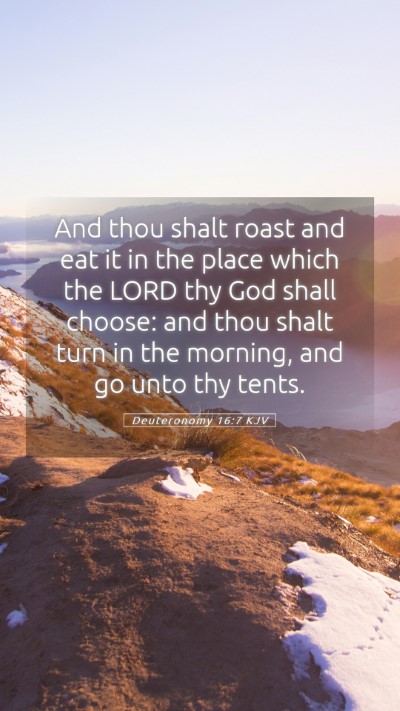Understanding Deuteronomy 16:7
Bible Verse: "And thou shalt roast and eat it in the place which the Lord thy God shall choose: and thou shalt turn in the morning, and rejoice before the Lord thy God, thou, and thy household."
Introduction
Deuteronomy 16:7 emphasizes the significance of specific rituals in the Jewish faith, particularly concerning the Passover and how God’s people are to conduct their celebrations. The verse encapsulates the essence of obedience, joy, and community in worship.
Exegesis and Context
This verse is part of the broader context of the festivals that Israel was commanded to observe. It underscores the importance of rejoicing in the presence of God, which carries both a communal and individual emphasis.
Insights from Public Domain Commentaries
-
Matthew Henry's Commentary:
Henry highlights the importance of eating the sacrifice in the place where God designated, indicating that worship must be conducted in a manner and a place sanctioned by God. The roasting of the lamb instead of boiling it signifies a more intimate and celebratory preparation of the meal, reflecting the joyous nature of the feast. He notes that the act of rejoicing in the presence of God is as crucial as the ritual itself, emphasizing a heartfelt participation in worship.
-
Albert Barnes' Notes:
Barnes elaborates on the directive to “roast and eat it” by elucidating the cultural and historical practices of sacrifice in ancient Israel. He points out that roasting the lamb created a sense of communal gathering and enjoyment among the people. Additionally, Barnes stresses that partaking in the festivities showcases the acknowledgment of God's saving grace, which is the essence of the Passover celebration.
-
Adam Clarke's Commentary:
Clarke provides a detailed examination of the ritual and suggests that the act of preparing the offering was as significant as the offering itself. He emphasizes the communal aspect of worship by stating that the enjoyment of the feast would strengthen familial bonds and community ties. Clarke further highlights that such observances are a means through which believers recognize and celebrate God’s provision and faithfulness.
Thematic Analysis
The verse encapsulates several key themes critical to understanding its message:
- Obedience: Compliance with God’s instructions is paramount, as seen in the direction to roast and eat in a designated place.
- Community: The commanded rejoicing before the Lord emphasizes the importance of shared celebration, reinforcing communal worship.
- Joy in Worship: The act of rejoicing reflects a joyous engagement with God, which is central to authentic worship.
- Celebration of Salvation: By observing these rituals, the Israelites remember and honor God's deliverance, particularly evident during Passover.
Application in Daily Life
Understanding Deuteronomy 16:7 provides key insights for modern believers:
- It encourages intentionality in worship practices, ensuring they align with God’s directives.
- It invites reflection on how communal gatherings can enhance spiritual growth and foster a sense of belonging within faith communities.
- It serves as a reminder that joy should be a central aspect of worship, focusing on God’s goodness and grace in our lives.
Cross References
This verse relates to several other scriptures that echo its themes:
- Exodus 12:8: Instructions regarding the Passover meal and the significance of its observance.
- Deuteronomy 14:26: Instructions to enjoy the offerings brought to the chosen place of worship.
- Psalms 100:2: An exhortation to worship the Lord with gladness, reinforcing the theme of joyful worship.
Conclusion
Deuteronomy 16:7 provides rich insights into the nature of worship in the Israelite tradition, emphasizing the importance of obedience, community, and joy. The verse invites modern readers to explore the depths of their worship practices while enjoying the presence of God in daily life. By understanding this scripture, believers can enhance their Bible study insights and deepen their spiritual journey.


